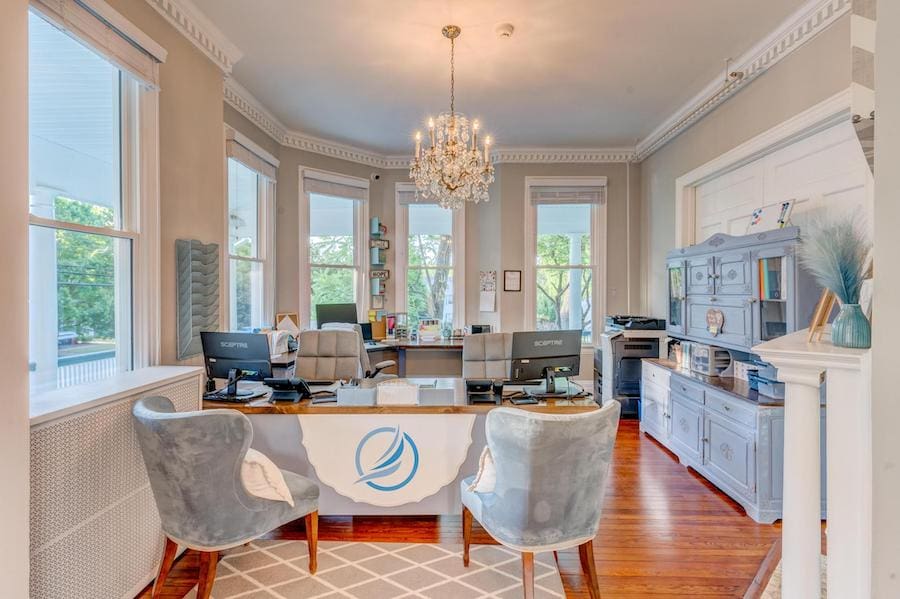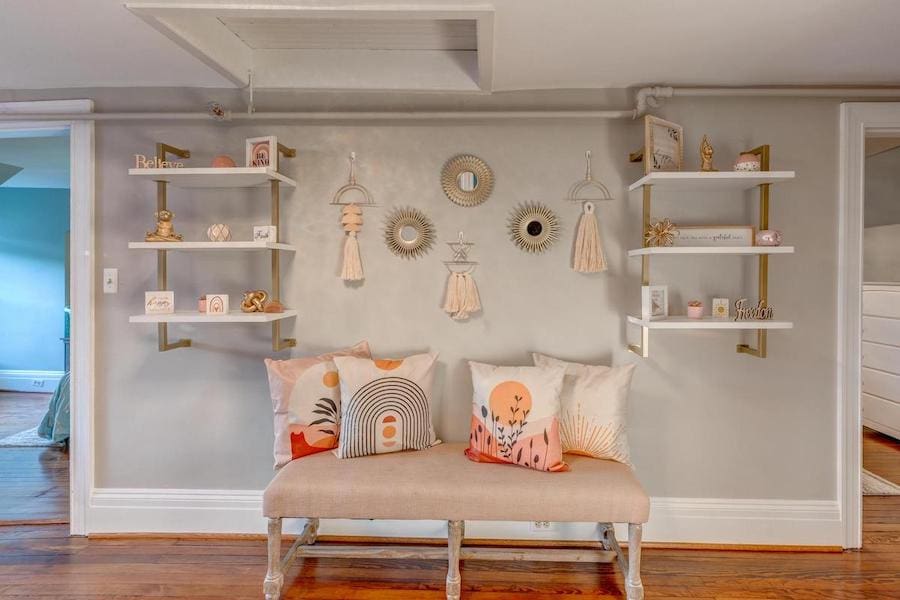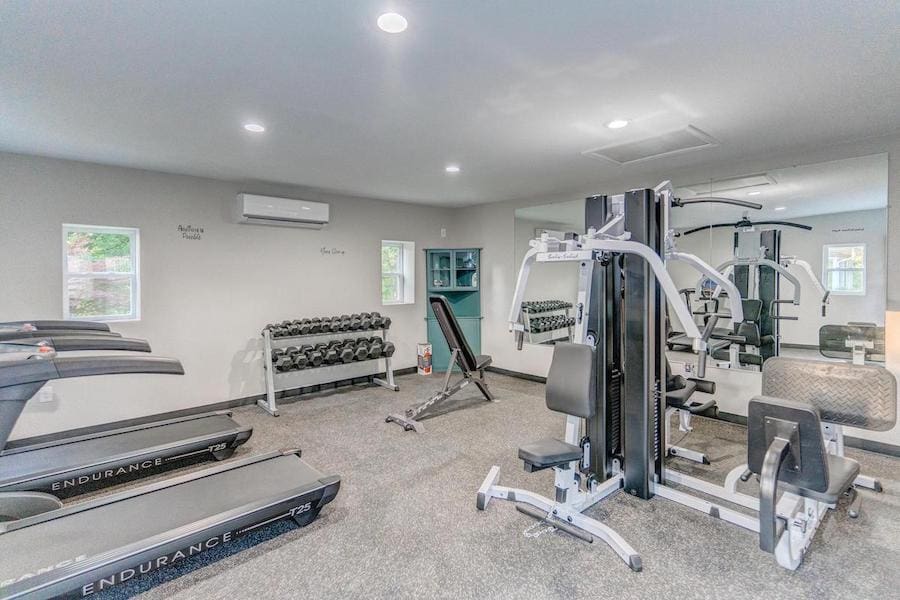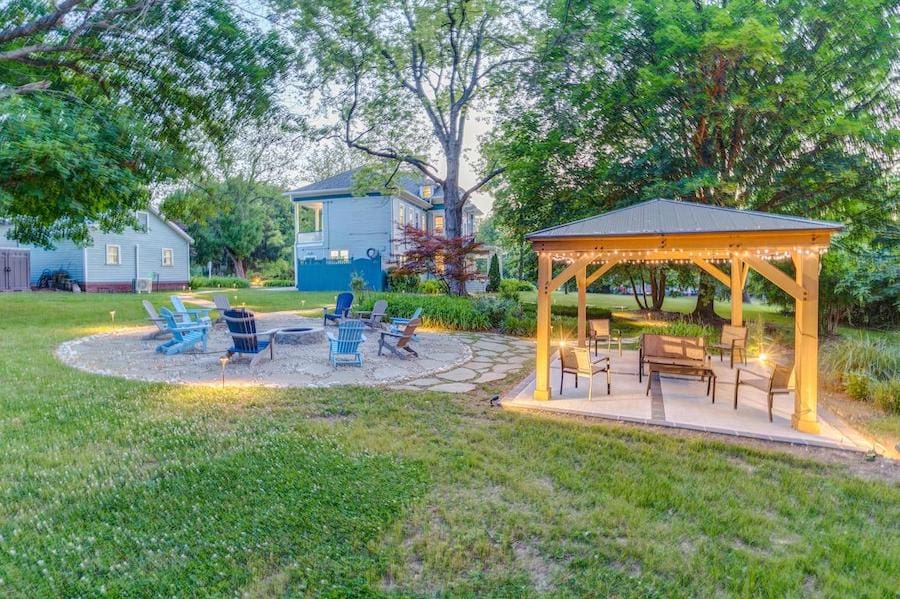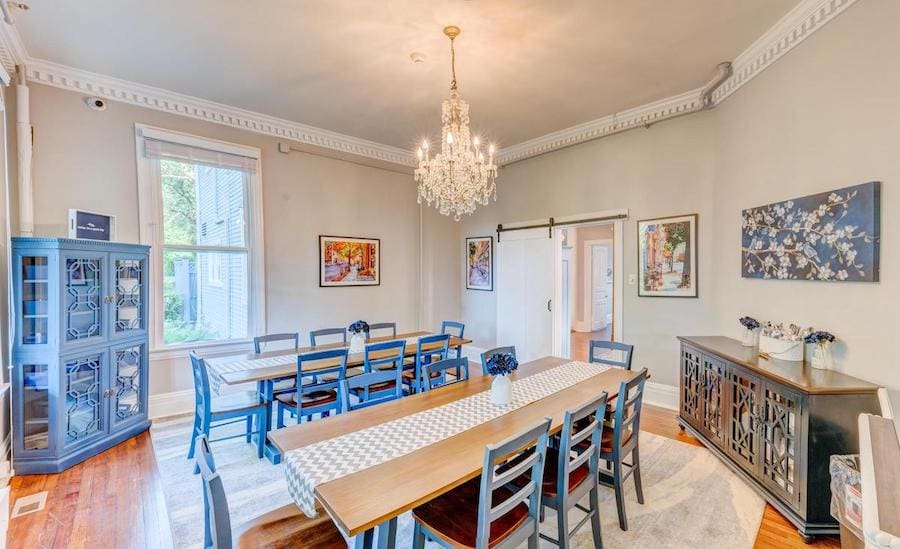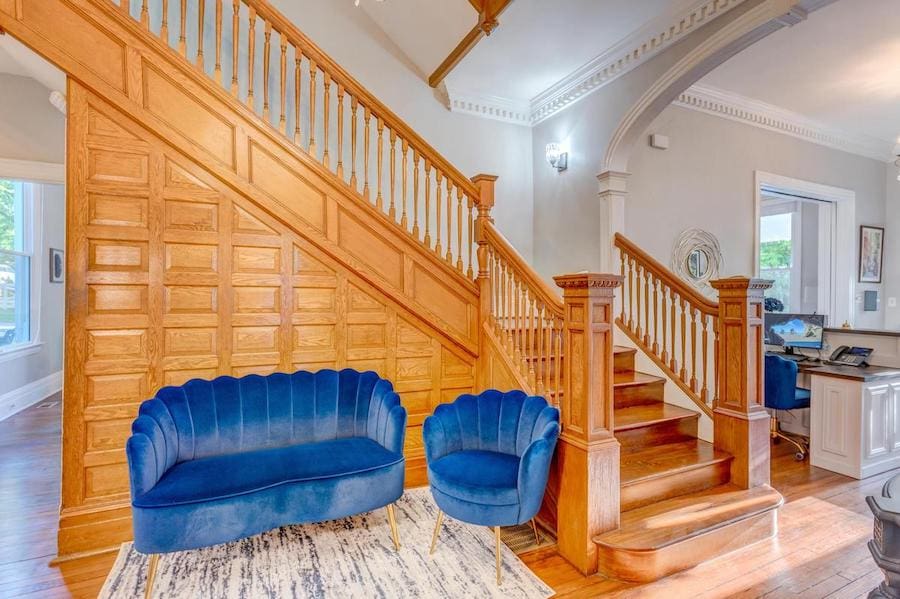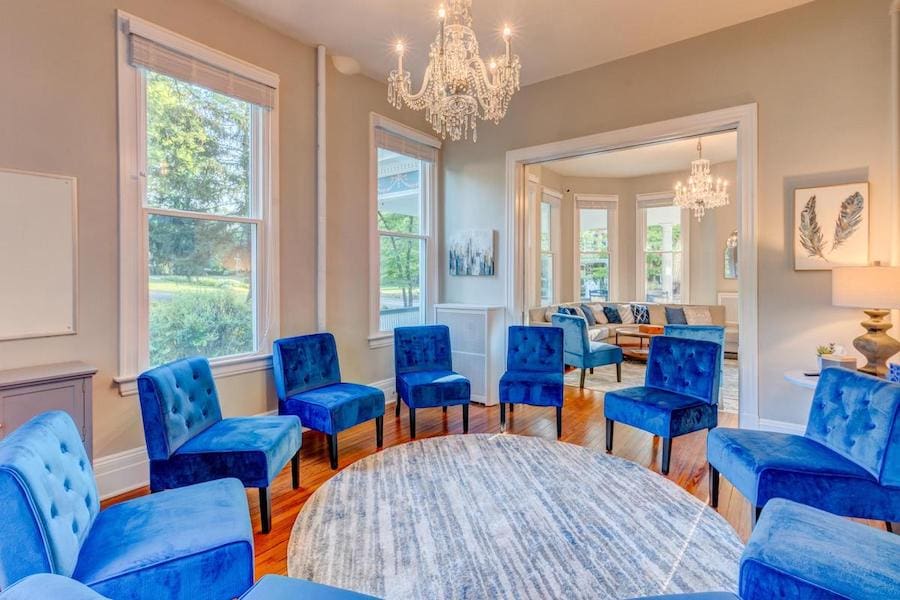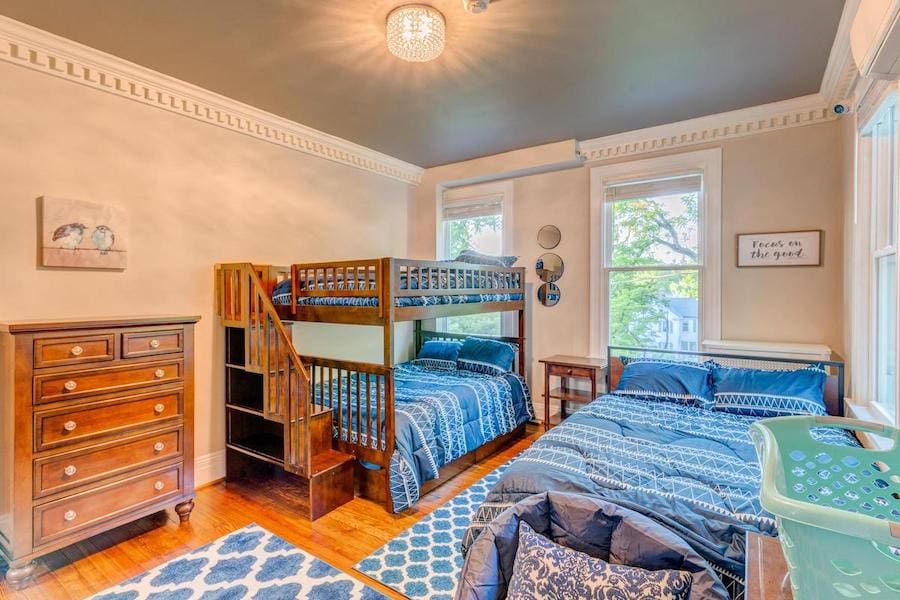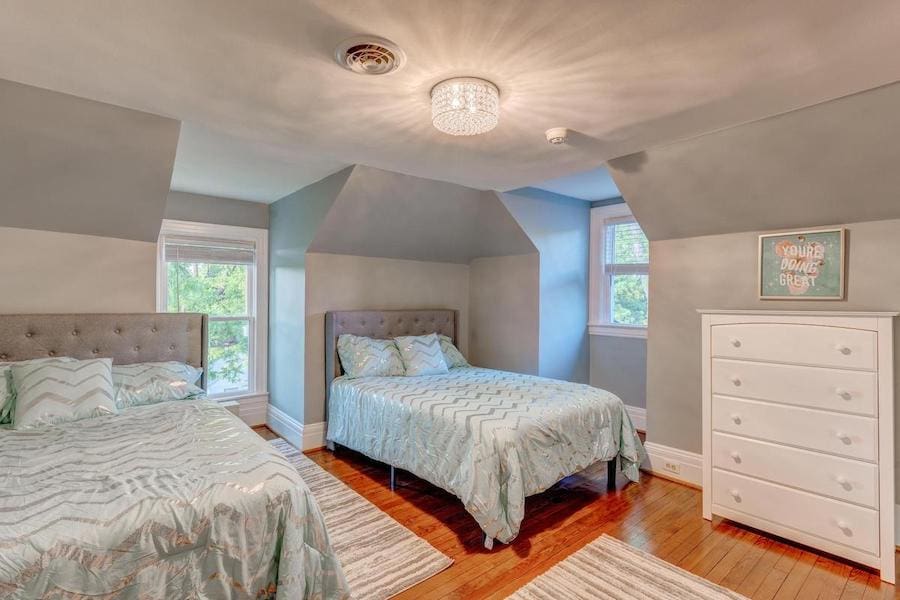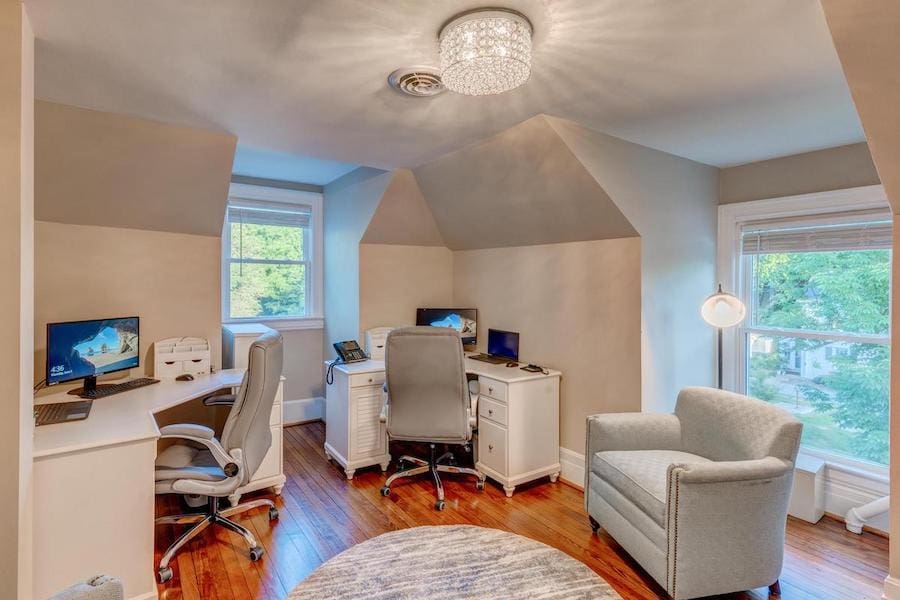Inpatient Residential Treatment
What is a Residential Treatment Program?
Inpatient residential treatment, also called residential treatment, is a rehabilitation program that requires patients to stay 24/7 at our treatment facility in Buckeystown, MD. This program allows for full medical supervision and a much-needed hands-on psychiatric approach.
At The Freedom Center, our residential treatment program aims to stabilize and enhance the life functionality of individuals who have completed detox and withdrawal. Inpatient treatment provides numerous benefits, including structure and routine, relapse prevention strategies, and 24/7 care in a safe environment.
Inpatient Program Overview
This type of program often begins with the detox stage, especially for severe addiction cases. Professionals would first evaluate patients so they can be properly diagnosed and the staff can figure out how to start treatment as they work out the best plan for the patient.
After detoxification, they will then need to start taking part in recovery activities in rehab, such as individual and group therapy, assessments, classes, and many other components that are part of the program. The type of approach, however, will depend on the facilities, and there is a lot to pick based on preference for inpatient treatment. Gender-specific or co-ed, holistic approach or not, many aspects of the treatment depend on the institution responsible for the programs.
Duration of Treatment
How long the residential treatment will last also depends on the general scenario of the patient. Short-term residential treatment, for instance, can last an average of 30 days, and that’s not counting the detox stage. Some of the longest inpatient treatment programs might take as many as 120 days, although some will allow patients to stay even longer. As the patient improves, the time left for their stay to be over will be adjusted by the team supervising their recovery.
Residential Treatment at The Freedom Center
Benefits of Inpatient Residential Treatment
The mission of our residential treatment program is to stabilize and improve the life functionality of individuals who have completed detox and withdrawal. Inpatient treatment offers several benefits. They include:
- 24/7 care in a professional and safe environment.
- A community of support.
- Provides structure and routine.
- Improves physical and mental health.
- Focuses on finding the root of people’s circumstances and treats their specific needs.
- Coaching from a Certified Peer Recovery Specialist.
- Psychiatric and medical services.
- Legal support/Case management.
- Relapse prevention strategies.
Inpatient Treatment FAQs
When is Residential Treatment Recommended?
If there are additional factors that require extra attention, inpatient treatment is also the best choice for addiction treatment. A diagnosis of an additional mental disorder, which would mean suffering from co-occurring disorders, for instance, would require additional attention at least in the initial stages of recovery. A dual-diagnosis case would require treatment of both the addiction as well as the psychiatric disorder, although the order in which they would be treated can differ.
The duration of the detoxification stage depends on many factors, such as the substance, the dose, the level of addiction, and the damage that has already been done, so no exact number of days can be suggested prior to an assessment or a diagnosis. Once this stage is done and the patient is not considered at risk or a threat to themselves and others, the psychiatric and medical phase of the inpatient treatment can begin, along with other activities.
What Happens After Inpatient Treatment?
After inpatient treatment, it is time to start transitioning into a healthy routine outside of the 24-hour care of practitioners. Even though some residential recovery programs allow patients to leave their program and go straight back to their normal lives, it is often recommended to transition at whatever pace necessary to avoid relapsing. And that is why there’s a different kind of treatment that can follow inpatient treatment: outpatient treatment.
Outpatient recovery programs are rehabilitation treatments that are just as efficient as residential programs, but that do not require patients to stay overnight or all day in order to receive medical and psychiatric help. These programs allow people to continue their usual routine as they recover from mental health disorders, so they can keep on going to work, taking care of family, studying, etc.
They are often recommended for milder cases of addiction, but they also work for anyone that wants to transition slowly into their daily, outside activities rather than go back at once. Other than that, they are also an option for those who do not qualify for residential treatment as their diagnosis might not fit the criteria.
So instead of staying 24/7, a patient has to make a number of visits a week for their sessions. The number and duration of such visits will depend on the scenario, the progress made, and the program that is chosen. A partial hospitalization program, or what is called PHP, for instance, is an alternative in which a patient has to go for sessions almost daily. The intensity of the treatment can be compared to that of residential treatment.
A partial hospitalization program is ideal for anyone who doesn’t feel very safe about going back home and into their community and usual day-to-day activities, as they fear they will ball back into their old habits.
If a PHP seems too intense or time-consuming, another great choice would be the intensive outpatient program, also referred to as IOP. While the concept of this program is essentially the same as a PHP – no need for a continuous stay like inpatient treatment -, the structure is just a little different.
IOP patients have to go back to their treatment facilities for individual therapy sessions, group therapy, and every other rehab activity required for their treatment, but these visits are not as frequent as it is with PHP.
Additionally, they might not be as long, either. While a PHP might require nearly everyday visits, an IOP would be less intense, with arrangements like thrice a week, for shorter sessions. As it is with partial hospitalization programs, IOP appointments would have to be decided depending on the needs of the patient, but they are less demanding than PHP treatment.
No matter what choice you make, it is important to understand that recovery is a process that extends beyond your stay or your visits – it’s for life. While adjusting, there is more that you can do in addition to therapy and medication in order to improve your mental, emotional, and physical health. Support groups, regular exercise, healthy eating habits, all of this and more has been proven to help the recovery process in great ways.
I Don’t Have Insurance, How Can I Pay For Inpatient Treatment?
Paying for treatment can be a challenge for some people or even the reason why they end up postponing their programs or not trying to get the help they need. If you have insurance, chances are your marketplace insurance can cover the program you want, since mental and behavioral health services are considered essential benefits, and insurances are required to cover them
Another possibility would be to look into your Medicare or Medicaid benefits if you know you are qualified to receive coverage from either of those. It is important to check which services are included since there are different types of coverages.
Still, many people cannot resort to those options, but that doesn’t yet mean they need to delay treatment. There are many ways to make a program more affordable, even if you have to pay out of pocket, such as:
- Sliding scale treatments – plans with fees that can be changed according to the patient’s income.
- Credit cards – people with good credit can use their credit cards, paying gradually as they are able to afford smaller payments a month.
- Payment plans – breaking the total price into monthly payments to get through them little by little.
- Rehab grants and scholarships – Government organizations offer grants or scholarships so that potential patients can afford their programs.
- Loans – even though it might not be anyone’s first choice, another alternative would be to take out a private loan, personal loans, or even home equity in order to afford treatment.
- Crowdfunding – online funds like a GoFundMe have become quite popular, useful, and efficient in getting people to come together to help pay for at least part of the costs.
Outpatient recovery programs are rehabilitation treatments that are just as efficient as residential programs, but that do not require patients to stay overnight or all day in order to receive medical and psychiatric help. These programs allow people to continue their usual routine as they recover from mental health disorders, so they can keep on going to work, taking care of family, studying, etc.
They are often recommended for milder cases of addiction, but they also work for anyone that wants to transition slowly into their daily, outside activities rather than go back at once. Other than that, they are also an option for those who do not qualify for residential treatment as their diagnosis might not fit the criteria.
So instead of staying 24/7, a patient has to make a number of visits a week for their sessions. The number and duration of such visits will depend on the scenario, the progress made, and the program that is chosen. A partial hospitalization program, or what is called PHP, for instance, is an alternative in which a patient has to go for sessions almost daily. The intensity of the treatment can be compared to that of residential treatment.
A partial hospitalization program is ideal for anyone who doesn’t feel very safe about going back home and into their community and usual day-to-day activities, as they fear they will ball back into their old habits.
If a PHP seems too intense or time-consuming, another great choice would be the intensive outpatient program, also referred to as IOP. While the concept of this program is essentially the same as a PHP – no need for a continuous stay like inpatient treatment -, the structure is just a little different.
IOP patients have to go back to their treatment facilities for individual therapy sessions, group therapy, and every other rehab activity required for their treatment, but these visits are not as frequent as it is with PHP.
Additionally, they might not be as long, either. While a PHP might require nearly everyday visits, an IOP would be less intense, with arrangements like thrice a week, for shorter sessions. As it is with partial hospitalization programs, IOP appointments would have to be decided depending on the needs of the patient, but they are less demanding than PHP treatment.
No matter what choice you make, it is important to understand that recovery is a process that extends beyond your stay or your visits – it’s for life. While adjusting, there is more that you can do in addition to therapy and medication in order to improve your mental, emotional, and physical health. Support groups, regular exercise, healthy eating habits, all of this and more has been proven to help the recovery process in great ways.
References:
You Can Get Help at The Freedom Center
The path to recovery is made of many stages, and it can be quite a long journey. While deciding to quit is the first step towards the right direction, without action, it is only a plan, not an actual decision. If you or a loved one feel unsure about how to get the help you need, we at The Freedom Center can offer you our services.
At our facilities, we offer both PHP and IOP treatment for anyone ready to start their transition into their daily routine, at a pace that is right for them. In addition to medical and psychiatric aid, we offer many extra activities that will improve the healing process and fully prepare a patient for the outside world. From holistic treatment to legal support and case management, you can have access to a range of services that will enable a smoother recovery process.
If you want to know which treatment is right for you and what more can be done, call 888-530-5023 to find out more and contact us today. Our team will be more than glad to answer all the questions you might have and help you decide which treatment option will be the right first move into your addiction-free life.

